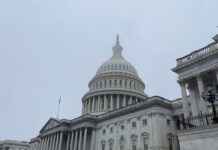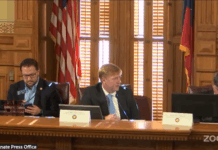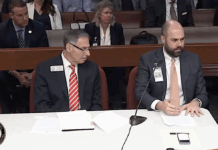
(GA Recorder) — The federal agency responsible for licensing Spaceport Camden again wants more time to evaluate plans to launch rockets from Georgia’s coast.
For a third time, the Federal Aviation Administration announced Monday it will delay its decision whether to grant a permit for the proposed Camden County project because of ongoing consultations, pushing it back from this Wednesday to Dec. 15.
Over the last nine years, Camden County officials have spent nearly $10 million trying to meet federal and state requirements for the controversial project. Environmental watchdogs and many local residents have registered strong opposition to the planned spaceport as a waste of taxpayer dollars and a space fantasy.
The FAA seemed poised to approve the operator’s license weeks after the agency indicated in June it favored allowing Camden County to build the launch facility.
Spaceport Camden spokesman John Simpson says that the recent delay is due to some parties asking the FAA for time to review revisions made to the final agreement.
“We understand that FAA plans to accommodate that request and will be scheduling that meeting soon,” Simpson said in an email. “This additional meeting has delayed the release of the (Record of Decision) and resulted in the FAA pushing back its timetable. However, we are still optimistic about a favorable decision on Spaceport Camden.”
Camden’s plans call for building a facility and launch pads that allow for as many as 12 commercial rocket launches annually over five years. The vision is scaled down to smaller vehicle launches from initial plans to launch rockets as big as the 230-foot-tall SpaceX Falcon 9.
Coastal environmental watchdog One Hundred Miles and other critics who claim the rocket launches pose a safety risk to nearby barrier islands support the agency’s decision to delay the review process.
Critics dismiss the notion from Spaceport backers about the scope of the economic impact that includes creating 2,000 jobs with new aerospace companies providing jobs for graduates of Georgia Tech and other Georgia colleges.
“I hope this is a sign that officials are concerned about the potential impact the spaceport will have on the safety of Camden County residents and that they are seeking further information,” said Megan Desrosiers, One Hundred Miles president and CEO. “I also hope it is partially a result of the massive movement of opposition that is occurring on the ground in Camden County, which Camden County officials seem to be ignoring. This project is a boondoggle money pit.”
Conservationists say it’s not unusual for a project as extensive as Spaceport Camden to get slowed down in the final stages. Speculation regarding Camden’s delays surrounds the historic preservation review process and concerns raised by the National Park Service regarding the threat that rocket explosions could pose to wildlife on nearby barrier islands, including the nearby Cumberland National Seashore.
There are also calls for a more extensive environmental review that fully takes into account the types of rockets proposed for the Spaceport and their failure rates.
“Spaceport Camden’s Final (Environmental Impact Statement) fails to properly consider the enormous risks the project poses to Cumberland Island and the public,” said Brian Gist, senior attorney for the Southern Environmental Law Center. “The FAA should use these ongoing conversations with other agencies to remedy these shortcomings, to ensure that this risky project is properly evaluated, and to disclose those risks to the public as the law requires.”
After a decade in the works, the FAA could decide in another six weeks on the future of a project officials have said commercial launches into space will give Camden an edge over regional competitors.
Among the facility’s features would be a vertical launch pad, launch control and payload processing centers as part of the plans for space tourism and sending low-orbit satellites for GPS.
Still, county officials say judging the success of the spaceport won’t be based on the number of launches, but rather on its ability to attract other businesses and a broader tax base.
If the FAA approves the spaceport license, each launch would still require government approval.






